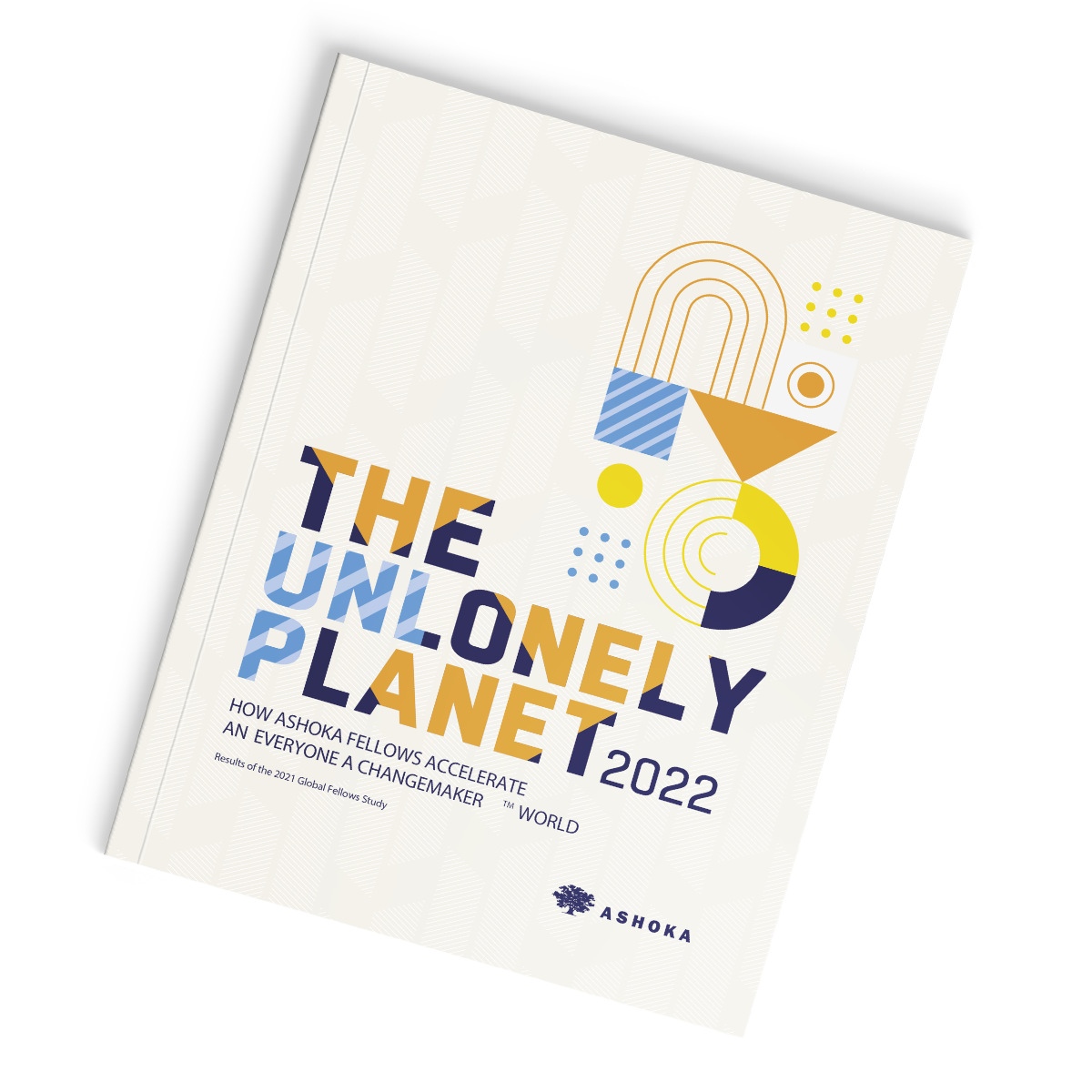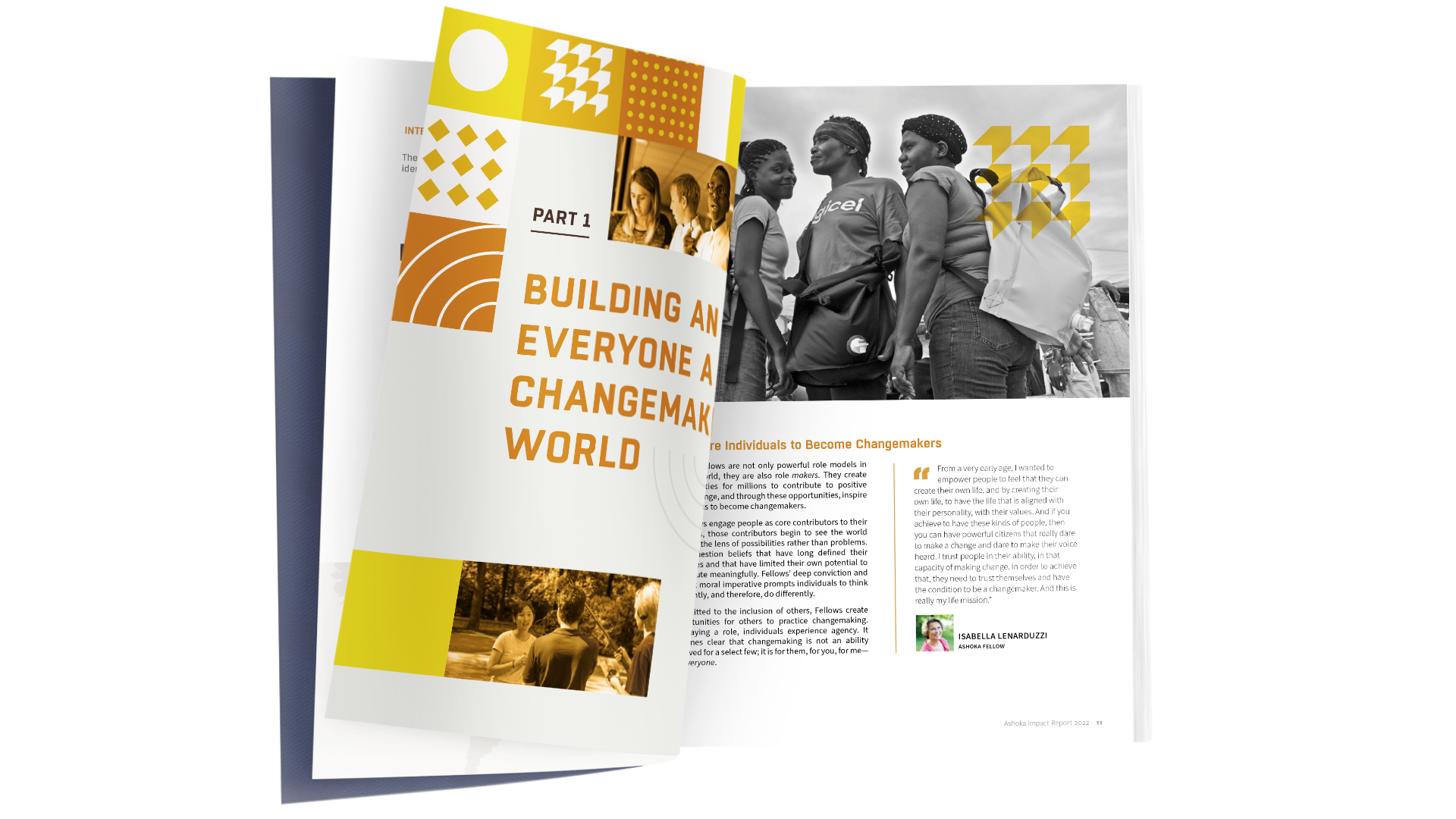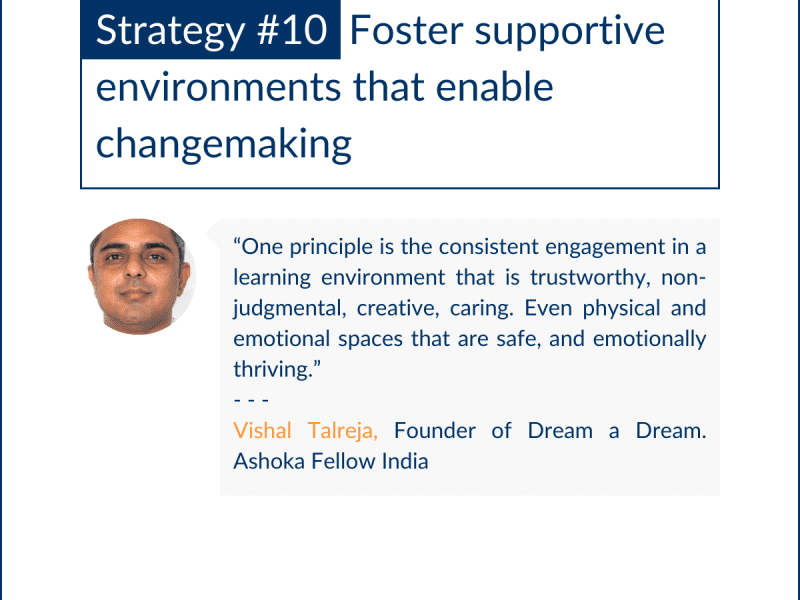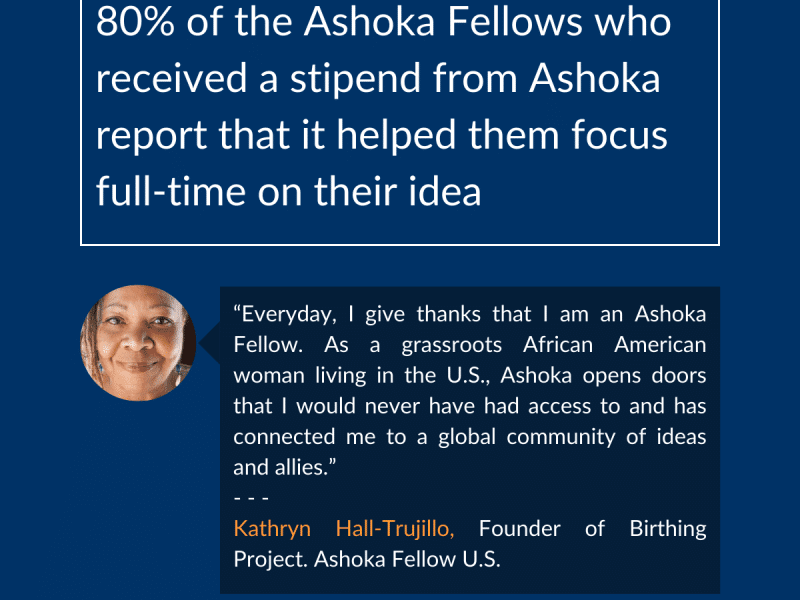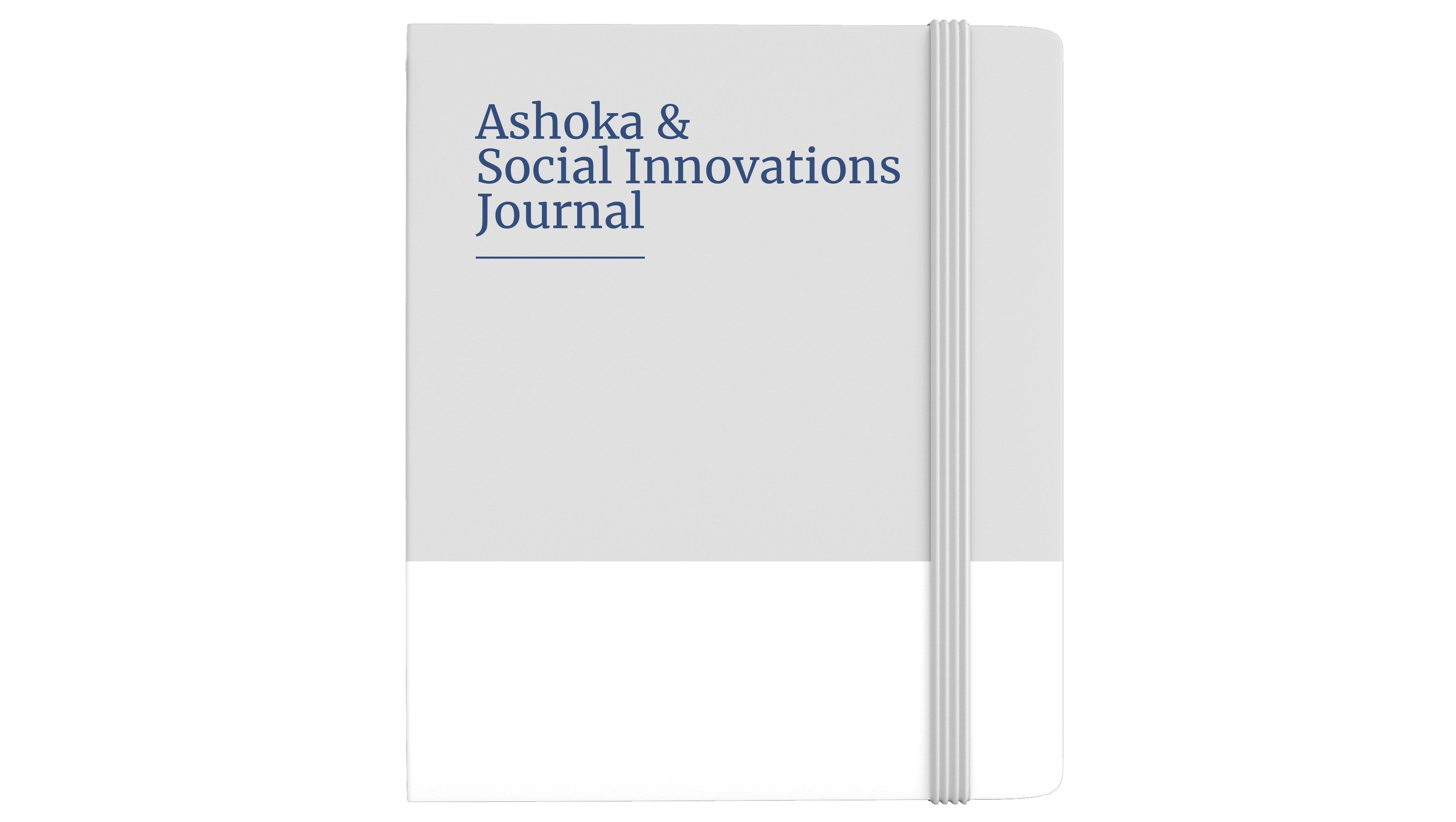Strategy 8: Shift policies and market systems. Many institutions either by design or inadvertently prevent large portions of society from reaching their full potential. Ashoka Fellows shift systems and restructure institutions to operate in service of the collective good and provide many more people the freedom and support to contribute. They do this by changing policies of large companies or industries (51%), encouraging them to include previously excluded communities (52%), or creating value for a product or service where it didn’t exist before (51%). At the legislative level, 63% of Ashoka Fellows changed or influenced government policy, while 66% have advised policymakers as experts.
Strategy 9: Influence societal mindsets or cultural norms. By influencing societal mindsets and cultural norms, they help others see and act in accordance with social changes that benefit all. Fellows do this by encouraging people to think differently (88%), through campaigns (43%), or through programs (21%).
Strategy 10: Foster supportive environments that enable changemaking. Fellows invest their energy in the creation of communities where individuals feel psychologically and physically safe, cared for and supported. They do this within the walls of the organizations, but also wherever they convene the broader community in public spaces from classrooms to community squares. In doing so, individuals feel comfortable to share their ideas, work with others, and build something new.
Strategy 11: Build ecosystems that sustain changemaking. Interview data show that Fellows bring together funders, businesses, governments, civil society organizations, media companies, and universities to reduce barriers that blunt agency and prevent individuals from engaging in changemaking. By banding together, they can exponentially increase their potential to address issues that perpetuate systemic inequality.
